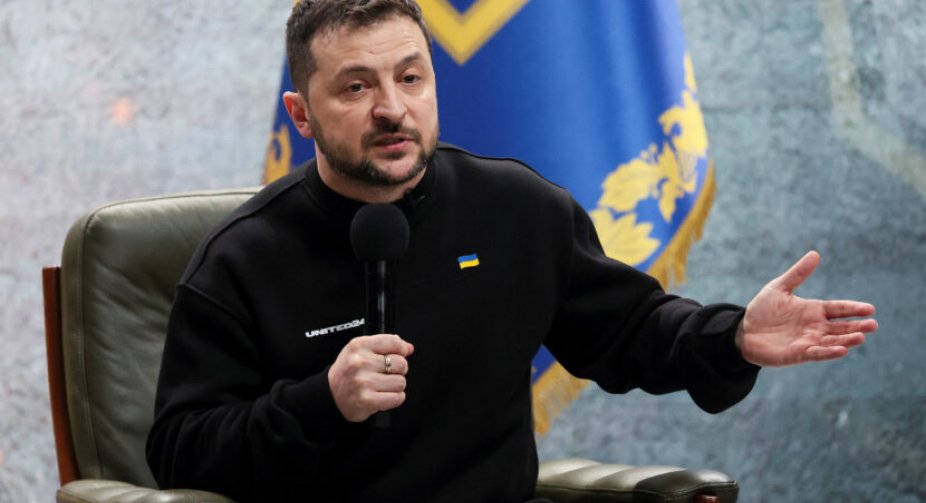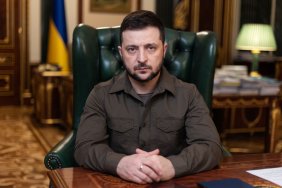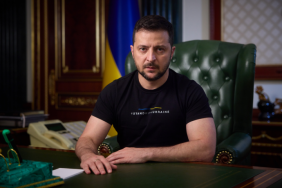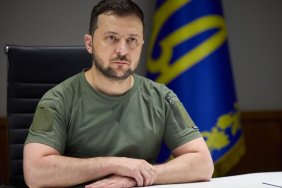The Economist writes that along with the grim reality of trench warfare, the "political battlefield" in Kyiv is becoming increasingly tense, President Volodymyr Zelenskyy sees a competitor in the Armed Forces Commander-in-Chief Valeriy Zaluzhnyi, and political infighting is harming Ukraine. This was reported by The Economist.
"When Russia launched its invasion in February 2022, competition policy went into hibernation. It came back when the existential threat to Ukraine decreased at the end of the same year. Opposition MP Yaroslav Zheleznyak says there is still "broad agreement" on fundamental national security issues. But a prominent lawmaker in the president's own party says the pushback has already made Ukraine "unstable." Mistakes are being made "on all sides." And the president's attempts to "centralize decision-making" and "suppress dissent" are having the opposite effect," the publication says.
The article emphasizes that mistakes lead to instability in the country, and the president's attempts to centralize power have the opposite effect. In addition, the British publication points to cracks between the military and political leadership.
Particular attention is paid to the criminal investigation into the defense of southern Ukraine and the possible consequences for Zaluzhnyi. The Economist notes that this investigation could be used to keep him in line and leads to tensions between the general and the political leadership.
The final part of the report analyzes Zelenskyy's ratings, which are falling due to corruption scandals and the threat of holding elections during the war.
According to domestic polls, the president's ratings have fallen, which could affect his chances in the upcoming elections.
The Economist concludes that the political turbulence and Zelenskyy's declining ratings could lead to a change in his strategy, and that Russian propaganda will take advantage of the uncertainty surrounding the election.
The Economist analyzed the political infighting and Zelensky's rating in Kyiv

Recommended News

The Economist writes that along with the grim reality of trench warfare, the "political battlefield" in Kyiv is becoming increasingly tense, President Volodymyr Zelenskyy sees a competitor in the Armed Forces Commander-in-Chief Valeriy Zaluzhnyi, and political infighting is harming Ukraine. This was reported by The Economist.
"When Russia launched its invasion in February 2022, competition policy went into hibernation. It came back when the existential threat to Ukraine decreased at the end of the same year. Opposition MP Yaroslav Zheleznyak says there is still "broad agreement" on fundamental national security issues. But a prominent lawmaker in the president's own party says the pushback has already made Ukraine "unstable." Mistakes are being made "on all sides." And the president's attempts to "centralize decision-making" and "suppress dissent" are having the opposite effect," the publication says.
The article emphasizes that mistakes lead to instability in the country, and the president's attempts to centralize power have the opposite effect. In addition, the British publication points to cracks between the military and political leadership.
Particular attention is paid to the criminal investigation into the defense of southern Ukraine and the possible consequences for Zaluzhnyi. The Economist notes that this investigation could be used to keep him in line and leads to tensions between the general and the political leadership.
The final part of the report analyzes Zelenskyy's ratings, which are falling due to corruption scandals and the threat of holding elections during the war.
According to domestic polls, the president's ratings have fallen, which could affect his chances in the upcoming elections.
The Economist concludes that the political turbulence and Zelenskyy's declining ratings could lead to a change in his strategy, and that Russian propaganda will take advantage of the uncertainty surrounding the election.





